Education as the path to peace
January 25, 2024
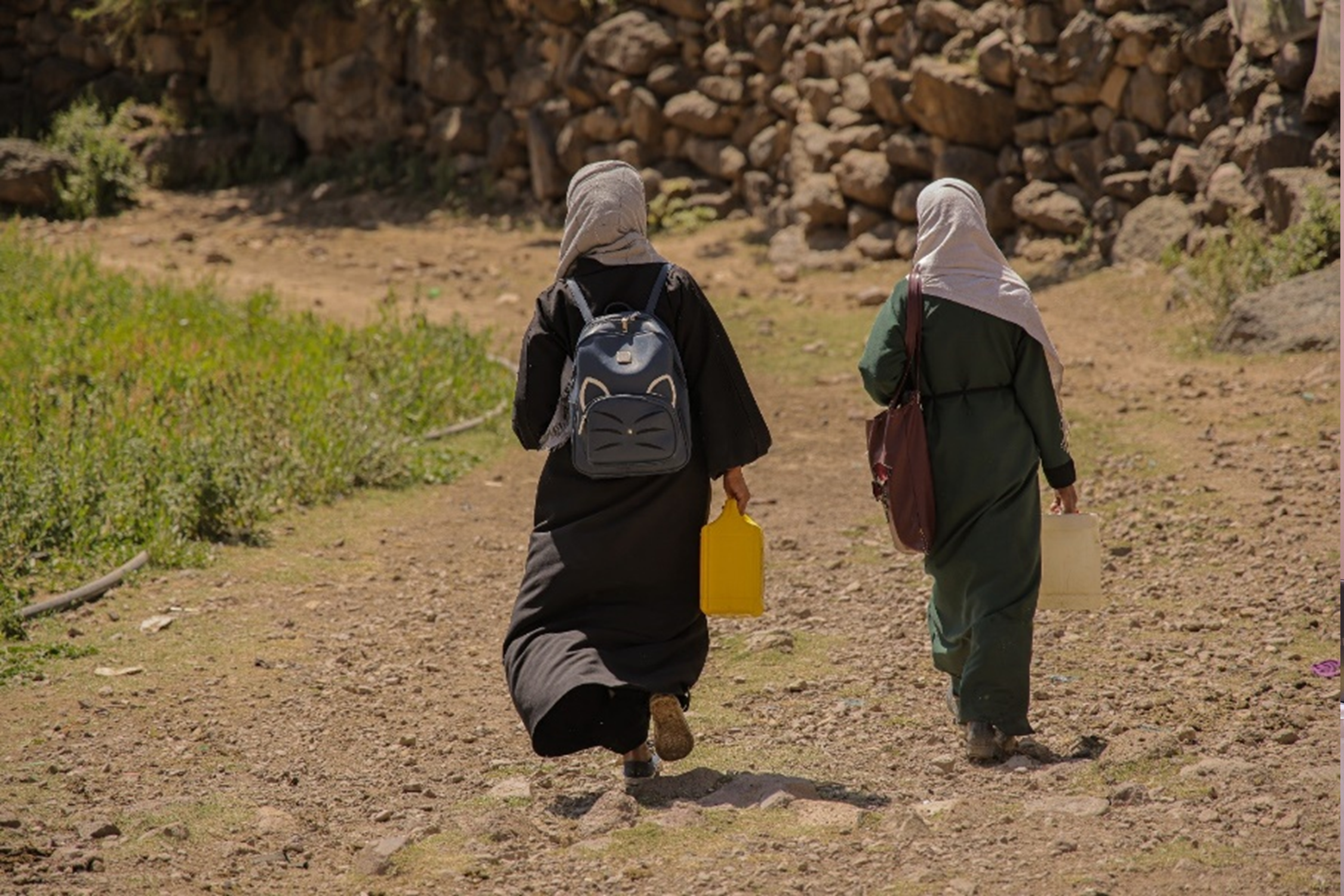
School children in Dhmar fetching water for their families.
In 2018, the United Nations General Assembly proclaimed 24 January as International Day of Education, in celebration of the role of education in peace and development. Education goes beyond critical literacy and numeracy skills, and research demonstrates that it increases competencies like empathy, tolerance, and intercultural understanding. Education is a right, a public good and a public responsibility.
Education, in all its forms and dimensions, in and out of classrooms, can and should be a pathway to bringing about lasting peace in Yemen and beyond. Against the backdrop of heighted tensions, growing inequalities, and the climate crisis, prioritizing and investing in education is now more compelling than ever.
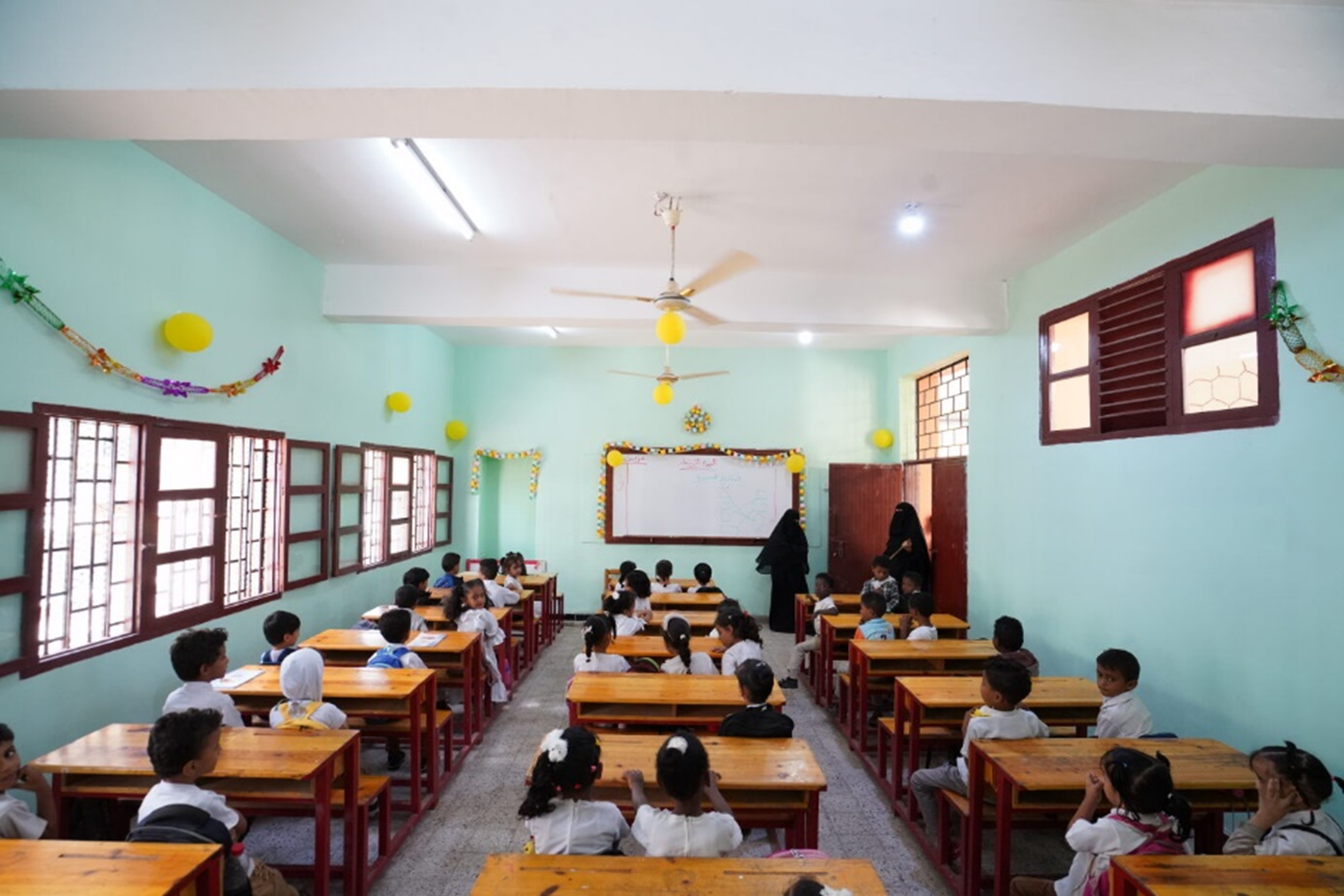
Children learning at an elementary school in Yemen.
As part of the UN Peace Support Facility’s phase I interventions, a training of trainers on school safety was conducted to enhance the safety of more than 50,000 students in 50 schools across six governorates in Yemen.
Ensuring that places of education are safe havens for students and education personnel is critical to the continuity of learning and teaching, the right to access quality education, and to fostering peace and social cohesion.
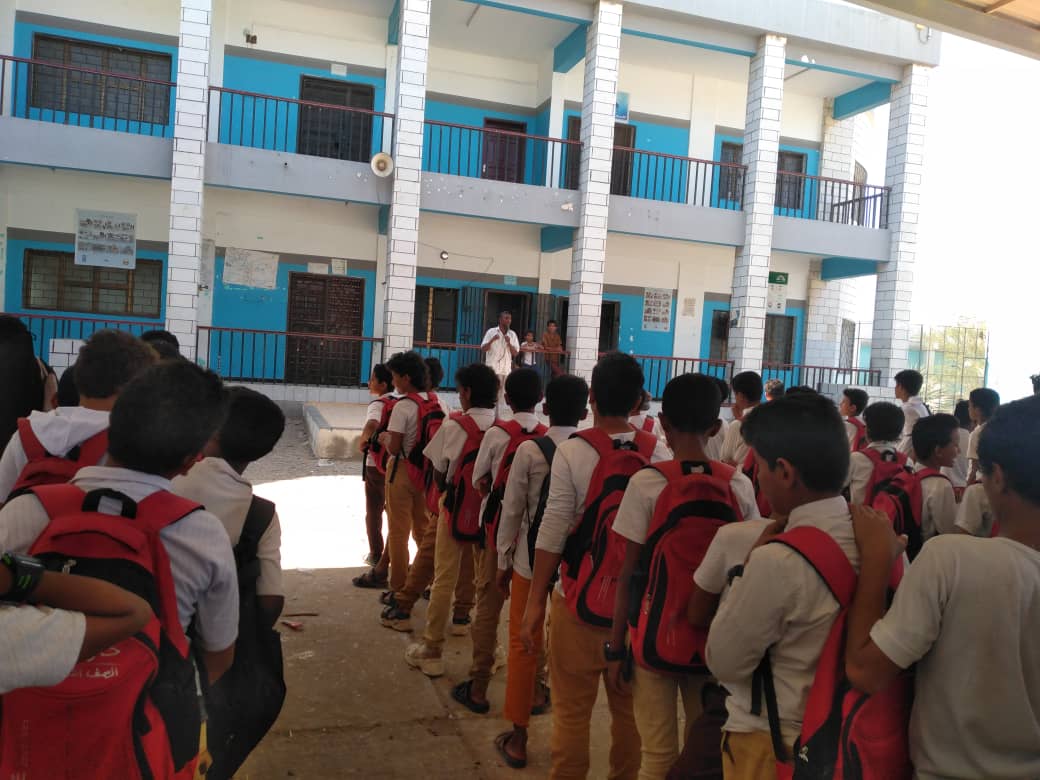
Children learning at an elementary school in Yemen.
In 2022, the UN Peace Support Facility joined forces with the Women’s Research and Training Center (WRTC) at Aden University to establish a peacebuilding network that aims to upskill and equip community members with mediation, dialogue, analytical thinking and negotiation skills. In addition, the network puts forward the Women, Peace, and Security (WPS) Agenda and advocates for women’s participation in all spectrums of peace processes through trainings, workshops, and lectures at the university.
The 100 women and men network members continue to actively transfer the knowledge and the skills that they acquired through the peacebuilding network to members of their local communities.
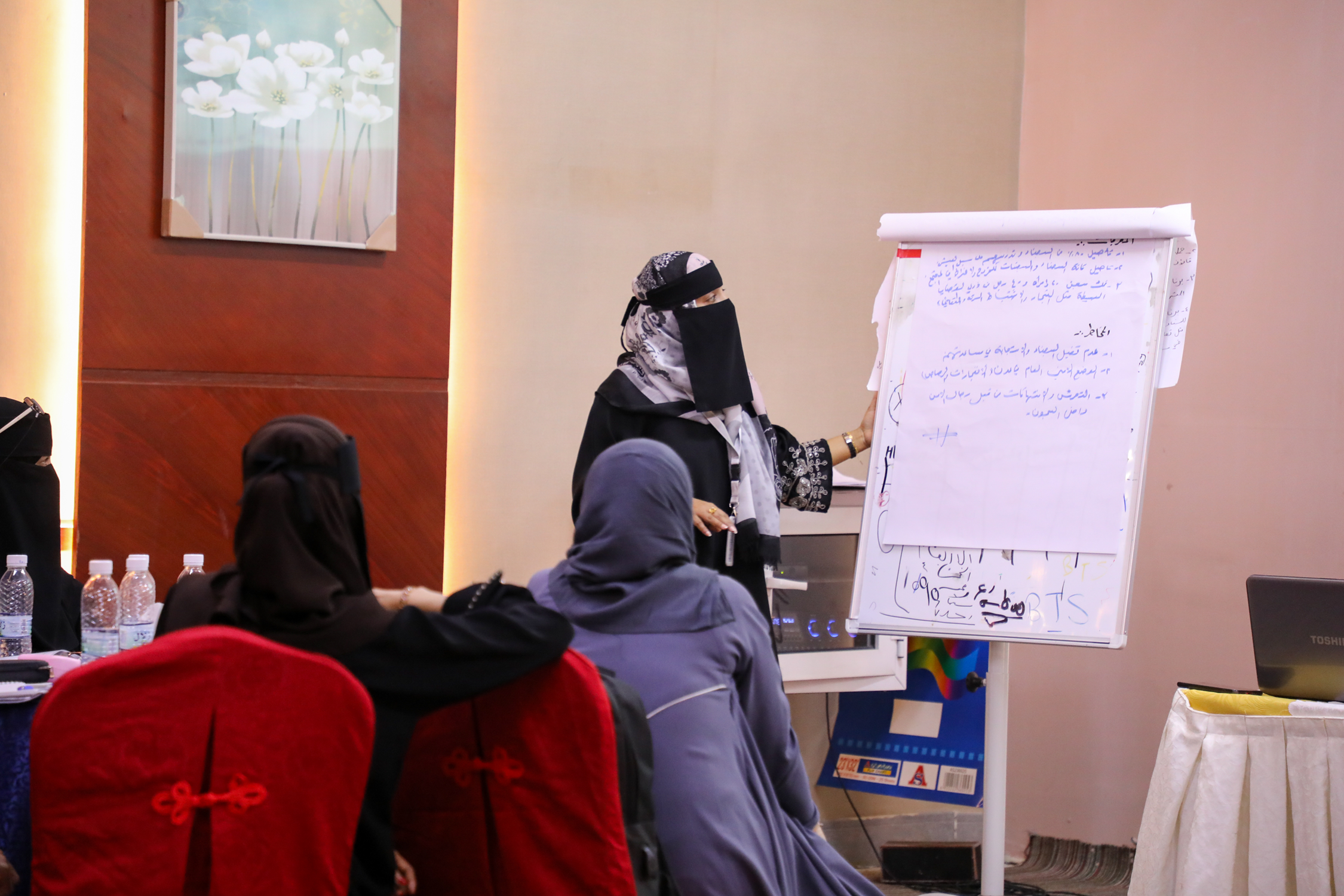
Discussion during a WRTC training session in Aden.
Dr. Saeed Al-Qashbri is an Associate Professor and Gender Analysis Consultant at the WRTC and the Executive Director of the WRTC’s Feminist and Development Studies Master's Program Alumni Network.
With more than 15 years of experience as an academic, Dr. Saeed believes that investing in peace education can accelerate progress towards peace in Yemen.
“Due to the diverse demographic composition in Yemen, the educational system has to be recalibrated to allow for the development of competencies like tolerance, social cohesion, cooperation, and acceptance of others, and rejecting intolerance and extremism.”
“When the educational system becomes more gender inclusive, more women will be able to reach decision making positions. This contributes to the achievement of just and equal societies, thus the achievement of durable peace.”
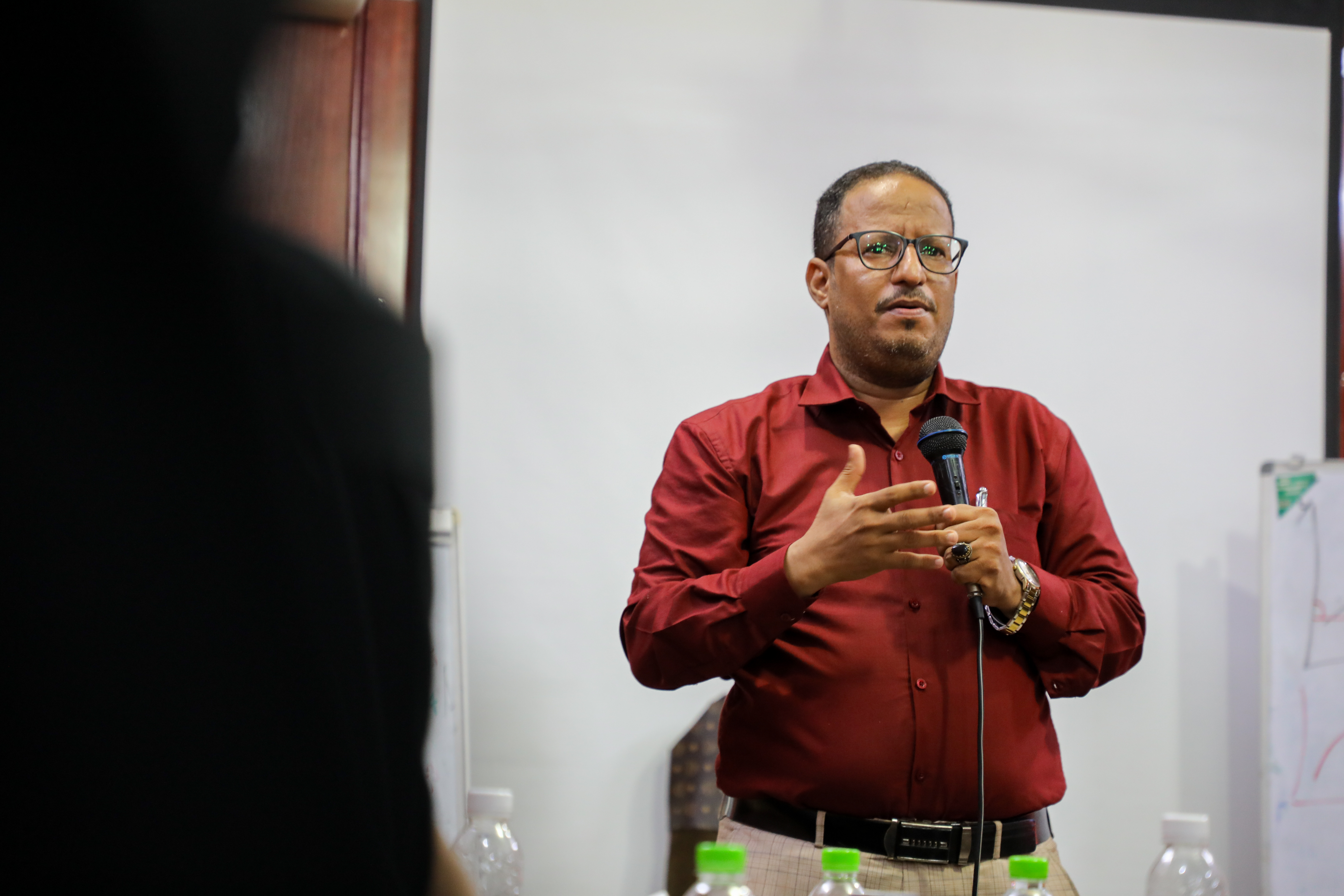
Dr. Huda Ali Alawi is a Professor of Criminal Law at the Faculty of Law, a researcher in human and women's rights and consultant in conflict resolution. She is also the Director of the Women's Research and Training Center at Aden University.
“We cannot achieve lasting peace without education. Education contributes to the psychosocial and cognitive development of communities. It allows communities to learn skills such as mediation and changes peoples’ behaviors for the better.”
“Raising awareness on the importance of conflict prevention, and the links between the achievement of durable peace and sustainable development, climate action and food security, especially among children and youth, is important because peace is more than just the absence of violence.”

Education offers learners a path to a promising future and a ladder out of poverty, the latter being a key driver of conflict. It should be transformative, and help empower learners with the necessary knowledge, values, attitudes and skills and behaviors to become agents of peace.
These activities were made possible thanks to the generous funding from the European Union, the German Cooperation, and the Government of Norway.

 Locations
Locations